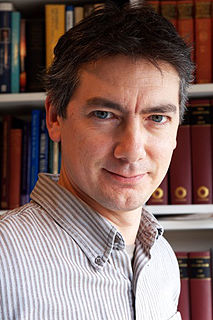This article is being considered for deletion in accordance with Wikipedia's deletion policy. |
 Cover | |
| Author | Scott D. de Hart |
|---|---|
| Country | United States |
| Language | English |
| Subjects | Percy Bysshe Shelley Frankenstein |
| Publisher | Feral House |
Publication date | 2013 |
| Media type | Print (Paperback) |
| Pages | 183 |
| ISBN | 9781936239603 |
Shelley Unbound: Discovering Frankenstein's True Creator is a 2013 book by Scott D. de Hart, in which the author argues that the poet, dramatist, essayist, and Gothic horror novelist Percy Bysshe Shelley, not his wife Mary Shelley, is the actual author of Frankenstein; or, The Modern Prometheus (1818). An alternate title of the book is Shelley Unbound: Uncovering Frankenstein's True Creator.

Percy Bysshe Shelley was one of the major English Romantic poets, who is regarded by some as among the finest lyric and philosophical poets in the English language, and one of the most influential. A radical in his poetry as well as in his political and social views, Shelley did not see fame during his lifetime, but recognition of his achievements in poetry grew steadily following his death. Shelley was a key member of a close circle of visionary poets and writers that included Lord Byron, Leigh Hunt, Thomas Love Peacock, and his own second wife, Mary Shelley, the author of Frankenstein.

Mary Wollstonecraft Shelley was an English novelist, short story writer, dramatist, essayist, biographer, and travel writer, best known for her Gothic novel Frankenstein; or, The Modern Prometheus (1818). She also edited and promoted the works of her husband, the Romantic poet and philosopher Percy Bysshe Shelley. Her father was the political philosopher William Godwin, and her mother was the philosopher and feminist Mary Wollstonecraft.

